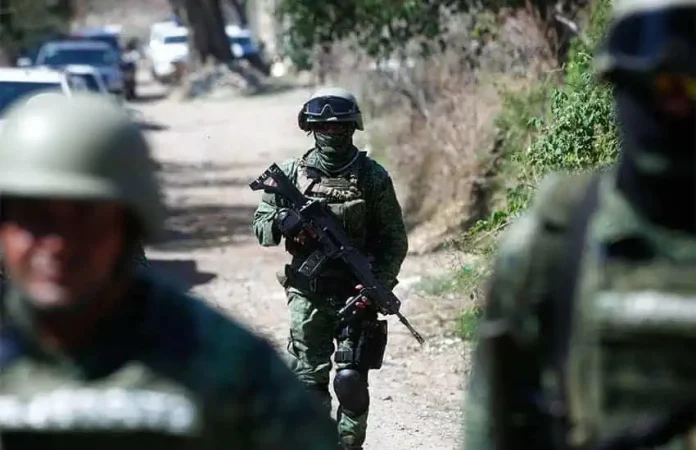Mexico’s forthcoming national election is a great opportunity to take a step back and rethink the bigger picture of public insecurity in Mexico. Crime incidence data shows that the policies and actions of the last three administrations — Calderón, Peña Nieto and López Obrador — have not significantly reduced most crime and violence indicators.
If insecurity is to improve in Mexico, understanding what has gone wrong in security policy is of utmost importance. A good starting point is to question the core public premises behind the actions of the different administrations.
We could plausibly state that the Calderón administration assumed that “winning the war” was a matter of relative coercive power, which implies that a sufficiently powerful and well-designed intervention by state forces would reduce criminal organizations’ activities. This was clearly not the case. Other variables proved to have a greater effect, such as the inelastic demand for drugs and corruption by public officials.
The Peña Nieto administration was not fully explicit in its approach to fighting insecurity, which seemed to be a lighter version of Calderon’s policy but with less initiative and more reactivity in the use of public force. The results were no better.
The López Obrador government changed the core premise, at least in the discourse. It assumed that individuals — especially young people — commit crimes and join criminal organizations because of economic necessity. Massive amounts of unconditional cash were allocated to disincentivize criminal activity, coupled with a more passive role by state forces, mainly the military, which took control of public safety. Again, the problem of insecurity has not improved in Mexico.
Contrary to what the AMLO administration assumed, the government’s allocations have become a complement to other types of incomes — including that from criminal activities — rather than a substitute. And there is no solid evidence showing that necessity has a linear relationship with the likelihood of committing a crime, as the policy seems to assume.
Reducing the state’s use of force has not reduced criminal violence either because most of that violence is related to confrontations among criminal organizations in which the state is merely a spectator.
The above paragraphs are obviously a massive simplification but provide a useful guide on how not to think about the solutions to Mexico’s insecurity problems. The security strategy of the new administration, whether headed by Claudia Sheinbaum or Xóchitl Gálvez, should learn from past failures and ask the right questions when designing policy interventions.
Increasing the state’s coercive power is a necessary but not sufficient condition to effectively reduce crime and violence. We need to think beyond what the different administrations have already implemented.
Here are two key questions we should be asking ourselves when designing the new administration’s security policy.
First, how can the current public insecurity problem be turned into something more manageable? It is clear that state organizations are overwhelmed. When a problem is as big and complex as public insecurity in Mexico, a useful approach is to first consider how to make the problem smaller before thinking about potential solutions.
An obvious option to simplify the fight is to legalize drugs in order to minimize black markets and the conflict surrounding them. This will not solve the problem by itself but will free a lot of budgetary and human resources to fight “easier” crimes and will reduce the incentives for corruption.
Obviously, legalization is not trivial, but we should start thinking about and working on it.
Second, how can we reduce the lethality of criminal organizations’ confrontations? Criminal organizations and conflicts among them exist in most countries, but not all confrontations are equally lethal. The variance is strongly related to the sort of weapons that these organizations utilize to confront each other. In this respect, illegal arms trafficking from the United States is a key problem to tackle. The current administration has taken an important step by explicitly including the topic in the agenda and acting upon it. It should now be a priority.
Overall, the very least we should ask is that the new policies and actions be based on evidence. There is already significant knowledge on the matter, which should be used.
Vidal Romero is a professor in the Political Science Department at the Instituto Tecnológico Autónomo de México (ITAM), Codirector of ITAM’s Center for the Study of Security, Intelligence and Governance (CESIG), and a faculty affiliate at ITAM’s Center on Energy and Natural Resources. He holds a Ph.D. in political science from Stanford University.
This article was originally published by the Wilson Center’s Mexico Institute.
Disclaimer: The views expressed in this article are solely those of the author and do not necessarily reflect the views of Mexico News Daily, its owner or its employees.
